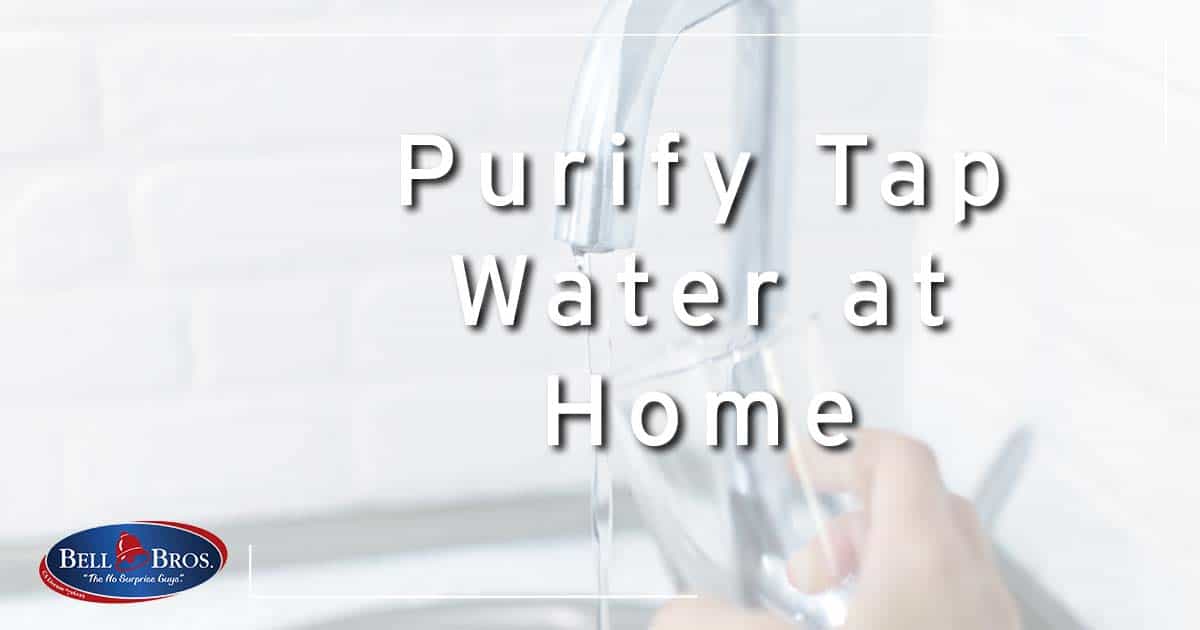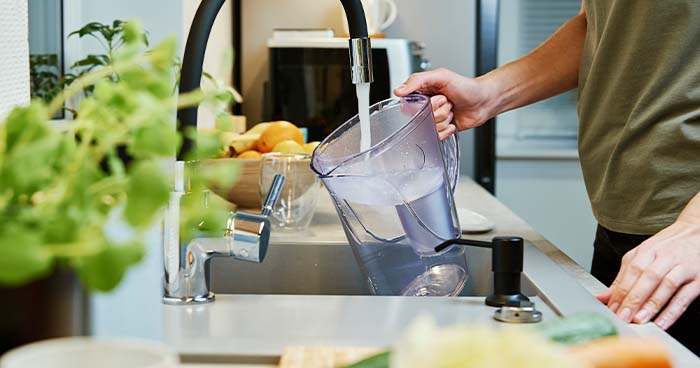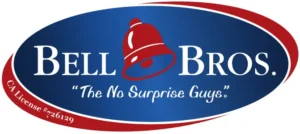 We’re lucky we live in California. Most of the water in our state is clean, and above all, healthy. However, there are some drawbacks. Mainly hard water. For those asking if they can purify tap water at home, the answer is that you can, but that comes with a few caveats.
We’re lucky we live in California. Most of the water in our state is clean, and above all, healthy. However, there are some drawbacks. Mainly hard water. For those asking if they can purify tap water at home, the answer is that you can, but that comes with a few caveats.
Hard water is something California is known for. If you’re wondering what makes water hard the answer can be traced back to minerals, mostly calcium and magnesium.
Hard water won’t hurt you in any way, but it can make your water taste and feel less than pleasant. It can also do damage to your pipes and appliances. Even your coffee maker isn’t safe from hard water.
Here are our favorite ways to filer and purify tap water at home.
A Pitcher Filter Won’t Cut It
The biggest reason people want to purify their water is actually for taste, according to the CDC. As we mentioned in the intro, hard water won’t hurt you, but it can taste a little funky. The same can be said for municipal water cleaning systems. Some water can still have a distinct chlorine taste and smell.
While the chlorine wont’ harm you, it’s not something everyone wants in their drinking water. Most Californians opt for a filtration pitcher. Or another receptacle with a built in water filter.

These are great for glasses of water, but what about the rest of your home? What about the water you cook and clean with? To filter and purify tap water at home, a Brita jug just isn’t going to cut it.
Here are some of our favorite options.
Pros and Cons of Sink Filters
While reading this, it’s so important to remember that the vast majority of homeowners do not need to purify their water. They simply want to filter it.
In some homes, a sink filter will get the job done just fine. There are several reasons why homeowners would want to choose a sink filter. We get it. Sink filters are inexpensive, easy to install, and great for cooking and drinking water.
The filters also need to be replaced. For a sink filter or any sort of jug filtration method, you need to change those filters every 2-3 months.
Tried and True Water Filtration Methods
The sink filter is not the end all be all of water filtration methods. Here are some two common methods used by Sacramento and Bay Area homeowners.
Water Softener
As the name implies, water softeners take the hardness out of your tap water. They use a saline solution to remove mineral deposits from hard water.
In the same vein of keeping clean, water softeners help stop the white spots left on clean dishes by hard water mineral deposits. Soft water will also help you use less soap, shampoo, and any human or home cleaning products.
Cons: Despite this, just like everything else in life, water softeners come with some cons. The biggest cons are cost and maintenance. In addition to installation costs, you’ll need to buy salt for the water softener and refill the salt once every month.
Along with the salt comes environmental issues as well. When dumped, salt wastewater can pollute freshwater streams and lakes. Also, water softeners do not purify or disinfect water. They only help with the taste and smell of tap water.
Reverse Osmosis
Reverse osmosis is another common water filtering technique. Notice, we said filtering, not purification. Just like water softener systems, reverse osmosis is a style of filtration. The reverse osmosis process sifts water with what is essentially a mosquito net for sediments, bacteria, fluorite and even lead particulates.
Cons: However, just like everything else, there are a few drawbacks. Just like a water softener system, wastewater created by reverse osmosis can have lasting effects on the local ecosystem. There is also a noticeable drop in water pressure after a reverse osmosis system is installed.
Consider a Whole House water Filter
Though these methods can filter your water, we recommend the one filter to rule them all. At Bell Brothers, our choice method is the whole house water filter.
A whole house water filter system filters any water before it actually comes into your house. Meaning the water is clean and filtered before it goes through any of your faucets. With a whole house filter, you can enjoy filtered water in your shower, dishwasher, and clothing washer.
To learn more about available water filtration and purification solutions, contact the experts at Bell Brothers.

